
by Sandra Gulland | Apr 1, 2018 | Mistress of the Sun, Questions Readers Ask, The Game of Hope, The Shadow Queen, The Writing Process |
Readers often ask, “What’s next?” The answer to that question depends on when the question is asked, of course. What follows is an evolving diary, begun many, many years ago.
A reader wrote some time ago:
Are you going to write more stories about the court of the Sun King?
Yes!
You did such a great job with the historical details and as I have studied Louis XIV and his court— there are plenty of interesting stories to tell (including the adventures of the Princess Palatine, even La Grande Mademoiselle and Lauzun, a couple that united even after a prison term and old age only to break up over greed).
Indeed! By the way, I love La Grande Mademoiselle, but have yet figured out how to tell her story.
You could even do a trilogy of Louis XIV’s Mistresses— you’ve done La Vallière, next could be Montespan, then Maintenon (the king’s mistress, then second wife).
I believe she’s onto me.
Or a novel on Princess Henrietta as she has a tragic back story with her father being killed, her brothers Charles and James, and she had several romances during her marriage to her cousin Monsieur that are interesting reading, including one lover who was her husband’s boyfriend who falls for Henrietta and became a master of disguise to see her at any cost (De Guiche–who visited her as a fortune teller, a litter bearer and in a domino so he could romance her in Philippe’s presence at a masked ball).
What wonderful suggestions these are. Henriette would indeed be a fantastic subject.
I especially love the De Guiche stories, and in fact wrote many scenes of him hiding in the fireplace and disguised as a fortune-teller, etc., but these scenes, like many, many others, now reside in my cut file.
What I wrote in answer to this letter above:
I am considering writing a novel about Athénaïs (Montespan), but it might focus on her first engagement more than her relationship to the king. I’m not sure. It could also be a story told from the point-of-view of Des Oeillets, her maid who was the go-between between Athénaïs and Voisin, the convicted poisoner.
As this reader points out, there are a wealth of wonderful stories to be told. The hard part is choosing. It took me eight years to write Mistress of the Sun because I kept changing perspectives. I even included the unforgettable Mademoiselle at one point.
I did, in fact, eventually choose to tell the story of The Shadow Queen from the point of view of Des Oeillets (Claudette).

But to answer, “What’s next?” I am writing a Young Adult novel based on the teen years of Josephine’s daughter Hortense. I am back in the Napoleonic world!

It’s Easter 2018, and Hortense’s story, The Game of Hope, will soon be published in Canada, two months later in the U.S.
As for what’s next? I’m writing — or, at least I think I’m writing — a novel about a teen, a girl falconer in Elizabethan England.
That story about Mademoiselle at the Court of the Sun King continues to haunt me, however. Might that be next next?
{Photo at top is by Evan Dennis on Unsplash.}SaveSave
SaveSave
SaveSave
by Sandra Gulland | Sep 5, 2014 | Baroque Explorations |
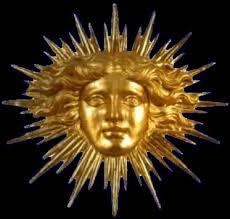
The birth of Louis XIV, the Sun King, was an occasion of great celebrating in France. He was called the “God-Given,” because Queen Anne had prayed fervently for a child after suffering several miscarriages and many years of marriage.
Here are some images of mother and son, and a charming portrait of the future Sun King as a toddler:
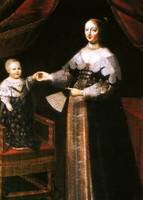
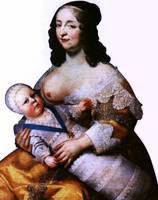
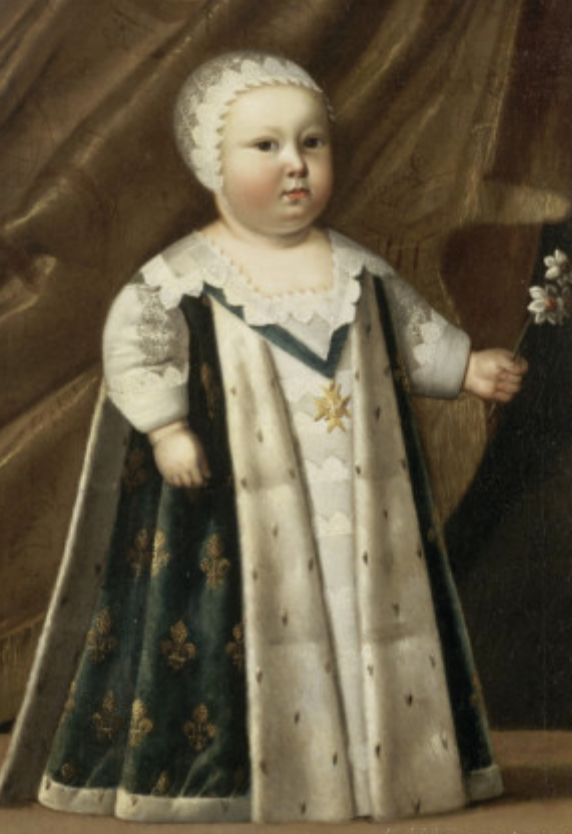
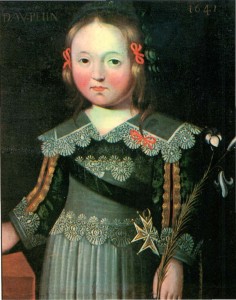


This last one, my favorite, is only presumed to be of the king. It shows the swaddling that was done at the time.
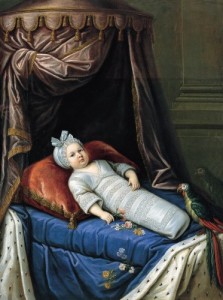

by Sandra Gulland | Aug 15, 2013 | Baroque Explorations |
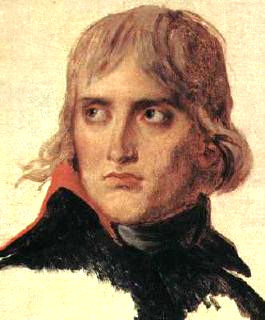
One of my closest friends—Jude Holland—and Napoleon Bonaparte share the same birthday: today, August 15. I’m not going to get all woo-woo about this, but the truth is that I am, in fact, surrounded by friends, family and historical obsessions of the lion persuasion. (I’m a Scorpio: I can handle it. ;-)
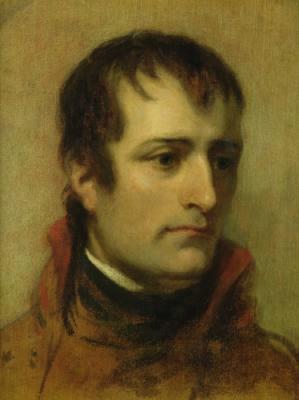
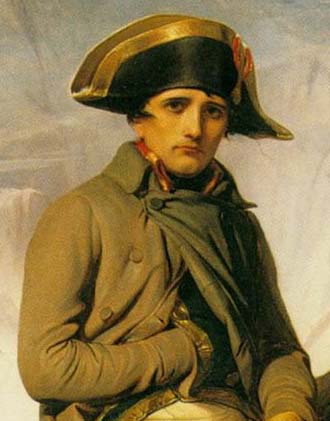

It’s curiously refreshing to have Napoleon back in my life. (I keep wanting to call him “Bonaparte,” as Josephine did.)
The Sun King and Napoleon — a study in opposites
Louis XIV, the Sun King, has been a sympathetic and admirable man to spend a decade with: he was an athlete, not mentally quick, but a hard-working man who strived to do the right thing. Born to rule, he was always careful, always on stage (and thus hard to read). His one obsession was sex (and perhaps that was because it was the only private realm of his existence where he could be free). Ah, and yes: he was also fairly attached to glory. He may not have been a literary man, but he was handsome, invariably polite, a fine dancer and horseman—and how romantic is that?
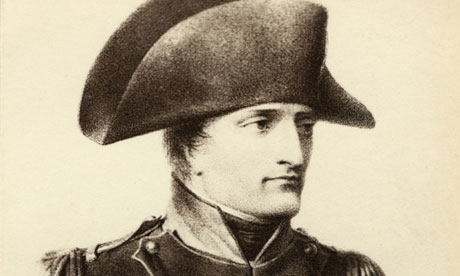
Now: Bonaparte. Not much of a looker, not a dancer (pas du tout!), and not much of a horseman (he went one speed—full gallop—and not infrequently fell off). He was blunt, socially rude—if not an embarrassment—and likely not much in the sack, either, given his general impatience with life. Like the Sun King, he was hard-working, a man who wanted to do the right thing, but as for self-control? Forget it. The world was his stage, and he was, who he was, who he was. And that was: volcanic.
What is Napoleon thinking?
You never really had to ask: what is Bonaparte thinking? His heart, as one says, was on his sleeve, as well as his mind, which was mercurial, lightening quick. He wasn’t literary, either, at least not in the classical sense, but he was moody and had a poetic imagination: ideas infused him.
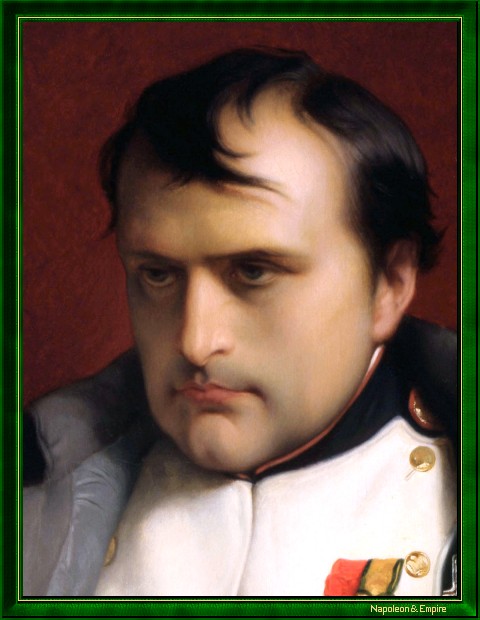
So: who would you prefer to spend a decade with?
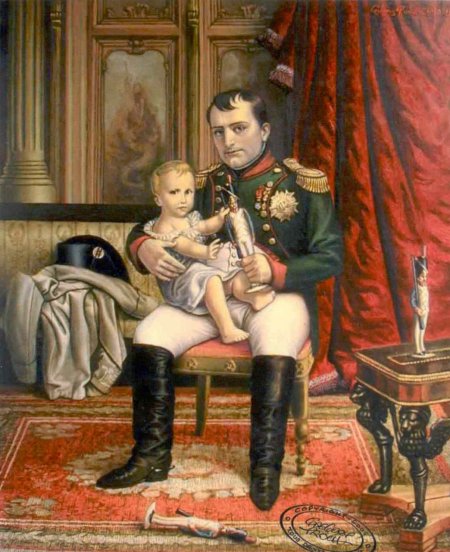
Here are some interesting articles I recently came upon:
A Napoleon theme-park to be built near Disneyland in France? (Is this a joke?)
On film historian Kevin Brownlow’s restoration of Abel Gance’s silent epic Napoleon. (The film versions of Napoleon is an interesting subject: another blog post perhaps.)
And a wonderful podcast series: Footnoting History, with a special series on Napoleon.
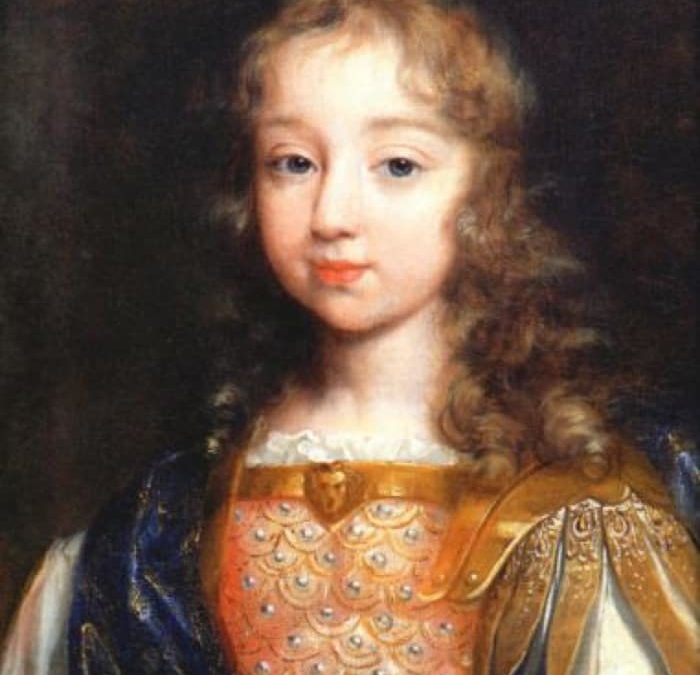
by Sandra Gulland | Jun 30, 2012 | Baroque Explorations, On Research, The Sun Court Duet |
A reader asked about Louis XIV’s father:
Has anyone given serious consideration to the possibility that Henri d’Effiat, Marquis de Cinq-Mars, was the biological father of Louis XIV?
Richelieu went to his close friend D’Effiat specifically to bring his handsome 18-year-old son into the court. Cinq-Mars was given the title “master of the wardrobe” which provided him access to the royal bedroom.
One year later, Anne was with child. Cinq-Mars was accused of conspiring against the king (with Anne) and beheaded.
Cinq-Mars also was, coincidentally, “the Favorite” in the biblical sense with the gay Louis XIII.
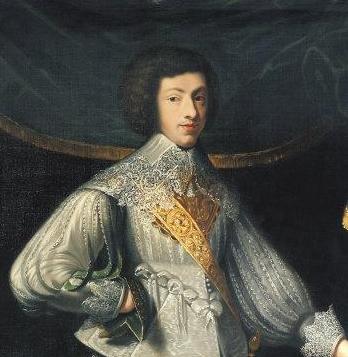
Henri de Cinq-Mars
My go-to-person for questions regarding Sun Court history is historian Gary McCollim. He generously provided this answer:
The answer to the question is simple:
No one ever accused Cinq-Mars of being Louis XIV’s father because of a simple matter of dates.
Louis XIV was born on 5 September 1638. Doctors had estimated in January that the queen was six weeks pregnant which meant that conception took place in late November 1637. The king and queen had been at Saint-Germain-en-Laye throughout the month of November and returned to Paris on 1 December. Doctors expected the child’s birth sometime between 23 to 28 August 1638.
Henri de Cinq-Mars was not appointed master of the king’s wardrobe until March 1638 when the queen was already pregnant.
While the appointment might have given Cinq-Mars access to the king’s bedroom, it did not give him access to the queen’s bedroom. Also, Anne of Austria for reason explained below was reluctant to join any conspiracy after the birth of her son. Some sources say she may even have been instrumental in exposing the Cinq-Mars conspiracy to Richelieu.
No serious historian today thinks that Louis XIV had any other father than Louis XIII.
Documentary evidence shows that Louis XIII and his wife, Anne of Austria, made up their differences in August 1637. Anne confessed to her participation of in some of the plots around the throne and of communicating with her brother the king of Spain. She promised to cease such behavior. Her near brush with disgrace persuaded her to abandon her plots and become the wife of her husband in fact and deed, so to speak. Louis XIII was convinced by Richelieu that the plotting would continue as long as he had no male heir. Thus, marital relations resumed between the two people in late summer 1637. The king had dedicated his kingdom to the Virgin Mary in February 1637 while praying for a male heir.
It has been fashionable among people today at a time when gay rights are in demand to think of Louis XIII as a homosexual and thus imply that he was somehow unable to father a child. We know that is not true. In fact, he was bisexual. He did have female favorites to whom he was loyal as well.
In any case, after the birth of Louis XIV the royal government put out the propaganda that his birth was miraculous, a result of prayers and supplications to God and the Virgin Mary.
Louis XIV was given the name Dieudonné (God-given).
There were many people who were surprised that the queen had gotten pregnant when she did, but no one at the time accused her of any improper behavior. There were people, such as the king’s brother Gaston and his cousins the Condes who had strong reasons to be wary of a surprise pregnancy as they were the heirs to the throne. Louis XIV’s birth pushed them further back in the line of succession.
Yet, Gaston and the Condes never made any accusations about Anne of Austira’s surprise pregnancy at the time or later during the Fronde.
A story emerged of the king Louis XIII being trapped in a terrible rainstorm on the night of 5 December 1637 and being forced to seek shelter in the Louvre where the only bed fit for the king was Anne of Austria’s.
Thus, implying that the conception took place that night. There is no proof that this story is true. Yet, it lives on in the popular imagination, plays have been written about it. In any case, Louis XIV grew up surrounded by this myth of his miraculous conception.
In the 1690s, however, when France was at war with all of Europe, his enemies the Dutch began to question the story and insinuated that Anne of Austria (who had died in 1666) had gotten pregnant from a man other than her husband.
One propaganda piece said the father was someone with the initials Le C. D. R. meaning Cardinal de Richelieu. Soon other candidates were accused of being the real father. Cardinal Mazarin was accused (he had died in 1661) but documentary evidence shows that he was in Italy from 1636 until 1640. Since the 1690s, historians have blamed other people, some famous like the Duke of Buckingham (died 1628) or the Duke of Beaufort (died 1669), and others less well known to be Louis XIV’s real father.
This whole story shows the power of propaganda to drive people’s imaginations without a shred of historical evidence.
In any case, Cinq-Mars has never been named as a possible father for the reasons I showed above.
Books that can shed light on this subject are:
Jean-Vincent Blanchard, Eminence (2011)
A. Lloyd Moote, Louis XIII, the Just (1989)
Ruth Kleinman, Anne of Austria, Queen of France (1985)
Claude Dulong, Anne d’Autriche (2000)
Jean-Christian Petitfils, Louis XIII (2008)
Gary is the author of: Louis XIV’s Assault of Privilege: Nicolas Desmaretz and the Tax on Wealth, published by the University of Rochester Press/Boydell & Brewer.
 His book discusses the difficult situation of royal finances at the end of the reign of Louis XIV, and how the king was forced to turn to Nicolas Desmaretz, a man who had been dismissed from the royal government in 1683 following the death of his uncle, the great Colbert.
His book discusses the difficult situation of royal finances at the end of the reign of Louis XIV, and how the king was forced to turn to Nicolas Desmaretz, a man who had been dismissed from the royal government in 1683 following the death of his uncle, the great Colbert.
Desmaretz had been critical of the royal government’s policies that increased the tax burden of the poorest elements of French society. He returned to the French government in 1703 as an assistant to the finance minister and became finance minister himself in February 1708. The book shows how Desmaretz and his staff were in contact with reformers and advocates of new policies. Out of this atmosphere of declining tax revenues, increasing defeats in the War of the Spanish Succession, and the refusal of France’s enemies to make a reasonable peace offer, Desmaretz decided to create a tax on the income produced by the ownership of property, in other words, a tax on the wealthiest elements of French society, to provide the funds necessary for France to survive the war and bargain for a reasonable peace.
After the war, Desmaretz was working to alleviate France’s debts in a way that could have changed the history of the eighteenth century except that Louis XIV died and Desmaretz was dismissed as the government turned to riskier schemes that boxed the royal government in for the rest of the eighteenth century leading to the Revolution.
About the author: Gary is a retired former employee of the US federal government He was educated at Muskingum College and received his doctorate in history from The Ohio State University studying under John C. Rule, a recognized expert on Louis XIV.
As always: thank you, Gary!
See also: The conception of Louis XIV.
by Sandra Gulland | Apr 7, 2011 | Baroque Explorations |
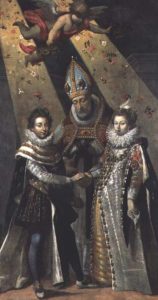
I’ve been researching adolescent marriages—right now, the marriage of Anne of Austria to the French king, Louis XIII, in particular. She was a Spanish princess (confusing, I know). They were both 10 when engaged, and 14 when married.
Often, in such cases, the young bride and groom do not live together and consummation is postponed until they have matured. In this case, however, the issue was forced in order to prevent the possibility of an annulment.
Although the son of the manly Henri IV (or, perhaps, because of it), Louis XIII was a timid boy, especially with respect to the opposite sex. It’s likely that he was homosexual by inclination. It’s said that he had to be bodily carried to the wedding bed.
Examining the evidence
The bed was canopied, but in the room sat two nurses. In the morning, the boy’s mother, the Queen-Regent, examined the sheets for evidence of virginal blood. The two nurses testified that the act had been performed twice. One wonders about this, for once free of his young wife’s bed, the fourteen-year-old king refused to return, refused even to eat with her for over six months.
A solution proposed
His reticence was a serious diplomatic concern. A cousin suggested a solution. She was going to be married: she and her betrothed suggested the King watch their nuptial congress. He did so, applauding as they performed for him twice—or so the story goes. Yet even so he would have nothing to do with his wife.
Success … after 23 years
Louis XIII did, eventually, manage to do “his duty.” Anne suffered a series of miscarriages, unfortunately. The first child she carried to term was Louis XIV, the Sun King, aptly called “God-given.” Needless to say, because Anne did not give birth until after she and Louis XIII had been married for over twenty years, there have always been rumours—ungrounded, I should note—about the Sun King’s true biological father.
Do you know of other stories of youngsters marrying?
{painting: November 24, 1615 – Wedding of Louis XIII of France and Anne of Austria}


















 His book discusses the difficult situation of royal finances at the end of the reign of Louis XIV, and how the king was forced to turn to Nicolas Desmaretz, a man who had been dismissed from the royal government in 1683 following the death of his uncle, the great Colbert.
His book discusses the difficult situation of royal finances at the end of the reign of Louis XIV, and how the king was forced to turn to Nicolas Desmaretz, a man who had been dismissed from the royal government in 1683 following the death of his uncle, the great Colbert.
